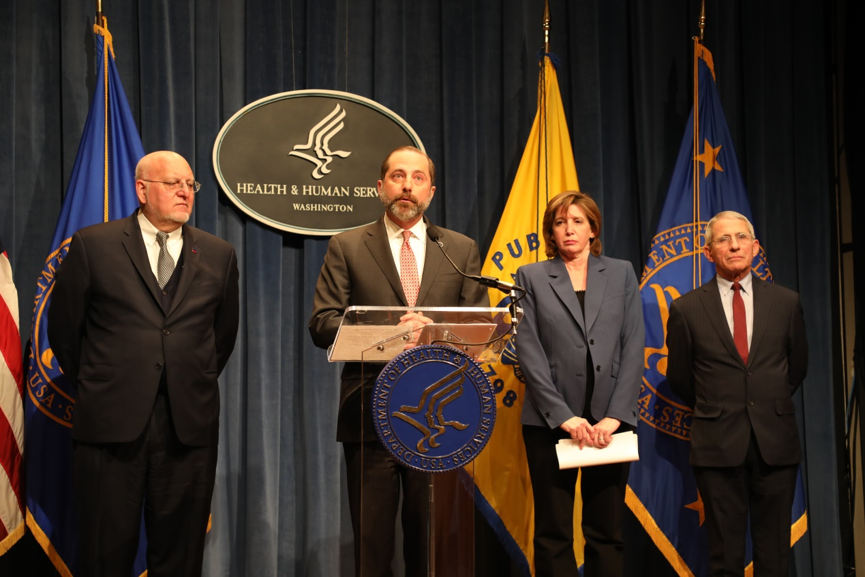Washington (People's Daily) -- The US Centers for Disease Control and Prevention (CDC) has expanded traveler screening from 5 airports to 20 airports in the United States.
CDC Director Robert Redfield made the announcement during a news conference Tuesday which included US Health Secretary Alex Azar, National Center for Immunization and Respiratory Disease (NCIRD) Director Nancy Messonnier, and National Institute of Allergy and Infectious Diseases (NIAID) Director Anthony Fauci.
Officials said, though the outbreak is a "potentially very serious public health threat" in the US, the current risk to Americans remains low and it is unnecessary for Americans to buy masks to protect themselves. The briefing also confirmed that there are no longer flights coming from Wuhan to the US at this point.
To date, there have been 5 cases of 2019-nCoV detected in travelers returning from Wuhan. The CDC issued updated travel guidelines for China on Jan. 27, recommending that travelers avoid all nonessential travel to the entire country (Level 3 Travel Health Notice).
“The coming days and weeks are likely to bring more confirmed cases here and around the world, including the possibility of some person to person spread,” Dr Redfield said at the briefing.
Dr Fauci confirmed there is no proven therapy for coronavirus infection. Fauci said he would anticipate with some cautious optimism that relevant vaccine research will enter a phase one trial within the next three months, though it does not mean a vaccine will be available by then or soon after.
The National Institutes of Health and two US companies, Inovio and Moderna, are working to develop vaccines that would help address the outbreak, the Hill reported on Tuesday.

Top US health officials update response to coronavirus outbreak at a Tuesday news conference in Washington DC. (Photo: Zheng Qi)
Secretary Azar noted that China's overall response has been significantly better when compared to its response during the deadly outbreak of SARS 17 years ago.
“It is excellent that China put the genetic sequencing online and complied with international health regulations work,” he said.
Azar also found his interactions with the Chinese counterparts “very productive and cooperative.”
“CDC experts are standing by, ready, willing and able to go immediately to China, either on a bilateral basis or under the auspices of the World Health Organization,” added Azar.


